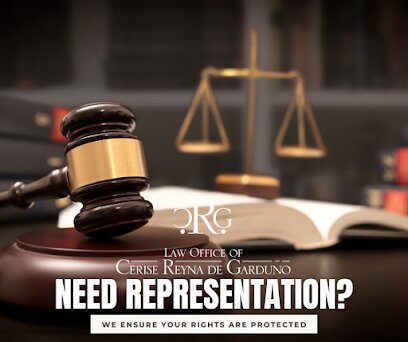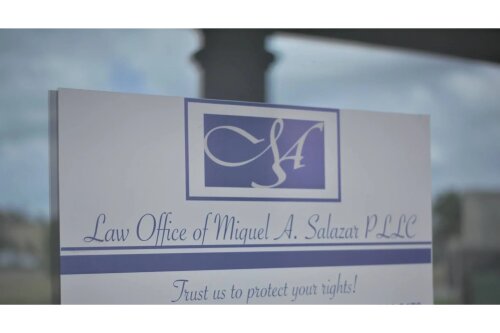Best Child Support Lawyers in Indiana
Share your needs with us, get contacted by law firms.
Free. Takes 2 min.
Free Guide to Hiring a Family Lawyer
Or refine your search by selecting a city:
List of the best lawyers in Indiana, United States
United States Child Support Legal Questions answered by Lawyers
Browse our 1 legal question about Child Support in United States and read the lawyer answers, or ask your own questions for free.
- Child support laws
- If my annual salary is 4 million pesos my wife's salary is 240,000 pesos, and she lives in Rizal, how much will I pay in child support for one child?
-
Lawyer answer by Rana Fazal Muhammad Law Associates
it is the discretionary power of the court to determine the amount for the support of your child, it is not fixed amount
Read full answer
About Child Support Law in Indiana, United States
Child support in Indiana refers to the financial obligation that a noncustodial parent must provide for the care, upkeep, and education of their child or children. These payments are designed to ensure that children receive appropriate financial support after separation or divorce. Indiana's child support system operates under strict guidelines laid out by state law and enforced by the courts to ensure consistency and fairness. The system aims to act in the best interests of the child, ensuring their needs are met regardless of changes in their parents' relationship.
Why You May Need a Lawyer
Although child support cases can sometimes be resolved amicably, several situations may require the expertise of a lawyer. You might need legal assistance if:
- There are disputes over the amount of support owed or paid.
- The paternity of the child is in question.
- You want to request a modification of an existing child support order due to a change in circumstances.
- Your ex-spouse refuses to pay child support or is behind on payments.
- You need help enforcing a child support order.
- There are complex income or asset considerations, such as self-employment or hidden finances.
- You are navigating interstate child support issues or relocation.
A lawyer can help interpret Indiana’s child support guidelines, represent your interests in negotiations or court, and ensure that filings and procedures are properly handled.
Local Laws Overview
Indiana's child support laws are primarily outlined in the Indiana Code, Title 31, Article 16. Some key aspects that you should know include:
- Calculation of Support: Indiana uses the Indiana Child Support Guidelines to determine payment amounts. These guidelines consider both parents' incomes, the number of children, child care costs, health insurance, and shared parenting time.
- Duration: Generally, child support must be paid until the child reaches age 19. In some cases, support may end earlier or be extended, for example, if the child is incapacitated or becomes emancipated.
- Modification: Support orders can be modified if there is a substantial change in circumstances, such as job loss, increased earnings, or changes in custody arrangements.
- Enforcement: The Indiana Department of Child Services enforces support orders through methods such as wage garnishment, tax refund interception, suspension of licenses, and other measures.
- Paternity: Establishing legal paternity is essential before an order will be issued if parents were never married.
- Court Involvement: Most child support matters are handled either through local courts or the child support division in your county.
Frequently Asked Questions
How is child support calculated in Indiana?
Indiana uses the Child Support Guidelines, which take into account the income of both parents, the number of children, costs related to health insurance and child care, and the amount of time each parent spends with the child.
Can child support payments be changed?
Yes. If there has been a significant change in circumstances, either parent can petition the court to modify the support amount. This might include substantial changes in income, employment, or parenting time.
What if the other parent refuses to pay?
The Indiana Department of Child Services can take action to enforce a child support order, including wage garnishment, suspending driver’s or professional licenses, seizing tax refunds, and more.
Does child support terminate automatically when my child turns 19?
In most cases, yes. However, support can continue beyond 19 in cases of incapacity, or end earlier if the child is emancipated by marriage, military service, or court order.
Do I need to establish paternity to get child support?
Yes. If the parents were not married at the time of the child's birth, legal paternity must be established before the court can issue a child support order.
Will child support cover college expenses?
Indiana does not automatically require parents to pay for college, but a court may order one or both parents to contribute to post-secondary educational expenses if a petition is filed before the child turns 19.
How long does it take to get a child support order?
The timeline varies depending on the case's complexity, the need to establish paternity, and whether the parties agree. Uncontested cases can be resolved within a few months, while contested cases may take longer.
What if the parent's income is hard to determine?
If income cannot be easily verified, the court may impute income based on work history, education, or earning potential to calculate an appropriate support amount.
Can I represent myself in a child support case?
Yes, you have the right to represent yourself. However, seeking legal counsel is highly recommended, especially for contested matters or if complex legal or financial issues are involved.
Where do I file for child support in Indiana?
Child support cases are typically filed in the local circuit or superior court in your county of residence, or through the county’s Child Support Division.
Additional Resources
If you need more information or assistance regarding child support in Indiana, consider contacting the following organizations or agencies:
- Indiana Department of Child Services - Child Support Bureau
- Indiana Legal Services (provides legal aid to qualifying individuals)
- Your local county Child Support Division
- Your local bar association’s lawyer referral service
- Indiana Judiciary Self-Service Legal Center (for forms and guidance)
Next Steps
If you need legal assistance with child support, consider the following steps:
- Gather all relevant documents, such as court orders, payment records, and proof of income.
- Contact your local Child Support Division for advice or assistance in filing a case or enforcing an order.
- Consult with a family law attorney to understand your rights and options.
- If cost is a concern, seek help from legal aid services or explore pro bono legal clinics in your area.
- Be proactive in communicating with the court and responding to any legal notices or court dates.
Child support can be complex, but with the right guidance and resources, you can protect your interests and the well-being of your child. If in doubt, do not hesitate to seek professional legal advice as soon as possible.
Lawzana helps you find the best lawyers and law firms in Indiana through a curated and pre-screened list of qualified legal professionals. Our platform offers rankings and detailed profiles of attorneys and law firms, allowing you to compare based on practice areas, including Child Support, experience, and client feedback.
Each profile includes a description of the firm's areas of practice, client reviews, team members and partners, year of establishment, spoken languages, office locations, contact information, social media presence, and any published articles or resources. Most firms on our platform speak English and are experienced in both local and international legal matters.
Get a quote from top-rated law firms in Indiana, United States — quickly, securely, and without unnecessary hassle.
Disclaimer:
The information provided on this page is for general informational purposes only and does not constitute legal advice. While we strive to ensure the accuracy and relevance of the content, legal information may change over time, and interpretations of the law can vary. You should always consult with a qualified legal professional for advice specific to your situation.
We disclaim all liability for actions taken or not taken based on the content of this page. If you believe any information is incorrect or outdated, please contact us, and we will review and update it where appropriate.
Browse child support law firms by city in Indiana
Refine your search by selecting a city.
















